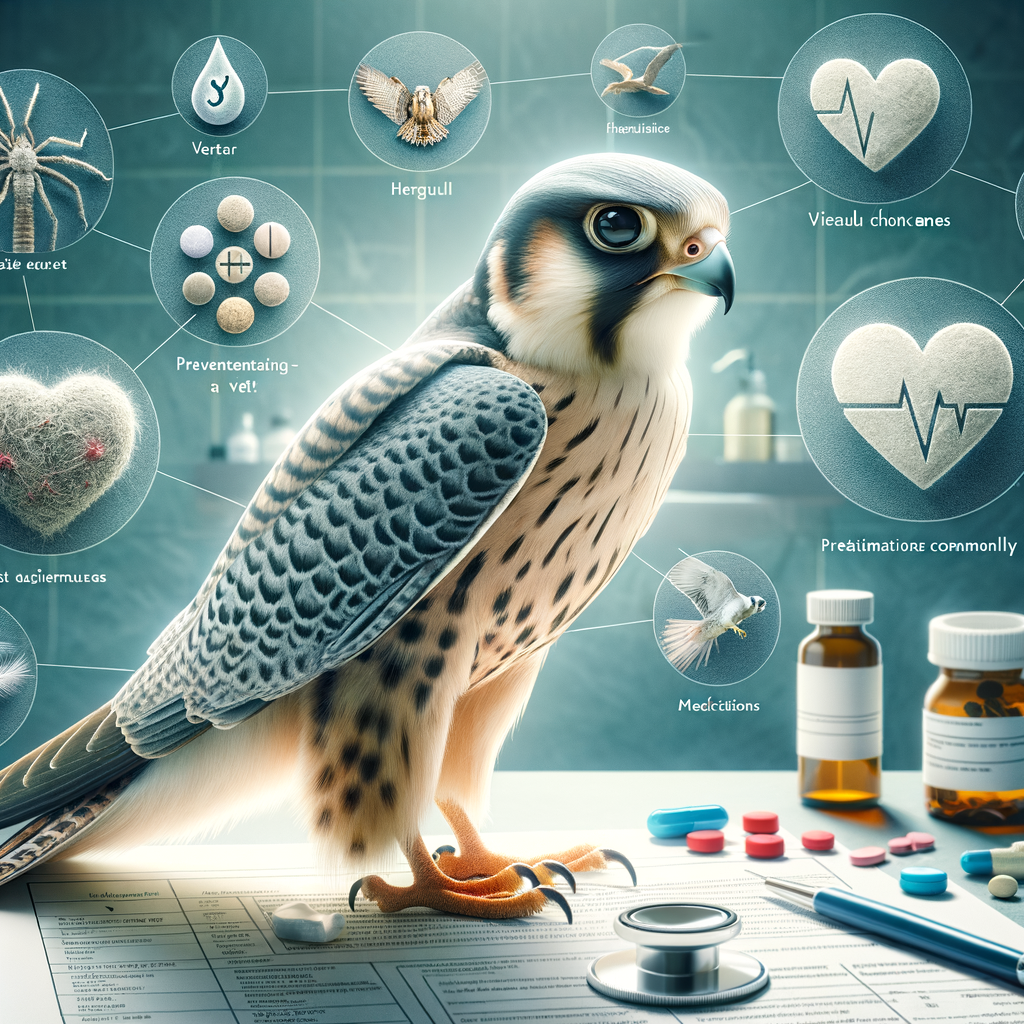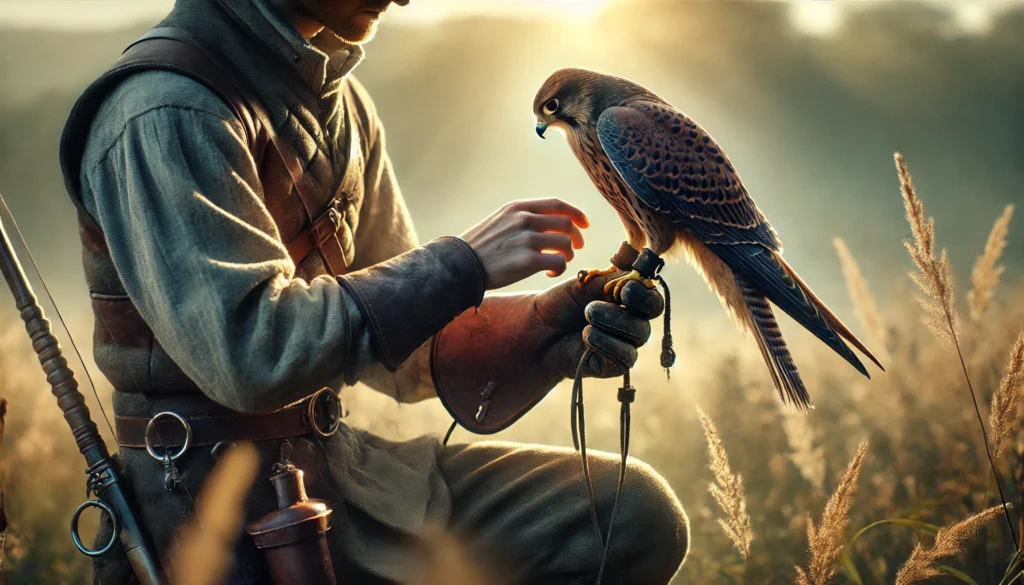Falconry is an ancient art that requires dedication and a deep understanding of these magnificent birds. One crucial aspect of falconry is maintaining the health of your feathered companion. In this article, we’ll explore the most common health issues that falcons face and provide essential insights for every falconer. From respiratory problems to parasitic infections, knowing what to watch for can make all the difference in keeping your falcon healthy and thriving.
Key takeaway points
- Regular health check-ups are crucial for falcons, including initial visits, annual exams, and follow-ups after medical issues
- Falconers should monitor their birds for signs of illness, such as behavioral changes or physical symptoms
- Exposure to wild birds may require a veterinary visit to check for diseases like avian influenza
- Proper facility maintenance, training, and compliance with regulations are essential for falcon health and safety
- Continuous education and adherence to best practices help maintain high standards of raptor welfare
Common Falcon Health Issues: What Every Falconer Should Know
Hey there, fellow bird enthusiasts! Ever wondered what might ruffle your falcon’s feathers? Well, you’re in for a treat! We’re about to dive into the world of falcon health, and trust me, it’s more fascinating than you might think.
Did you know that falcons, those majestic sky hunters, can face health challenges just like any other pet? Yep, it’s true! From pesky parasites to tricky respiratory issues, our feathered friends have their fair share of hurdles to overcome.
But here’s the kicker – understanding these common health issues isn’t just interesting trivia. It’s absolutely crucial for keeping your falcon happy, healthy, and ready for its next epic flight. Whether you’re a seasoned falconer or just spreading your wings in this awesome hobby, this article is your ticket to becoming the ultimate falcon health detective.
So, why should you keep reading? Well, imagine being able to spot potential problems before they become serious. Picture yourself confidently managing your falcon’s diet to prevent nutritional issues. Envision the peace of mind that comes with knowing exactly when it’s time to call in the pros.
Buckle up, bird lovers! We’re about to embark on a journey through the most common falcon health issues, packed with easy-to-understand info and practical tips. By the time you finish this article, you’ll be armed with the knowledge to keep your feathered friend soaring high and healthy. Let’s get started!
Common Falcon Health Issues
Falcons, like all birds of prey, can face various health challenges. Understanding these issues is crucial for falconers to ensure the well-being of their birds.
Common Health Problems in Falcons
Falcons can suffer from several health issues, including:
- Respiratory infections
- Parasitic infestations
- Foot problems (bumblefoot)
- Nutritional deficiencies
- Injuries from hunting or accidents
Recognizing Signs of Illness in Falconry Birds
Falconers should be vigilant for these signs:
- Changes in behavior or appetite
- Fluffed-up feathers
- Drooping wings
- Discharge from eyes or nostrils
- Difficulty breathing
- Abnormal droppings
Early detection is key to successful treatment. Regular health check-ups can help catch issues before they become severe.
Preventative Measures for Falconers
To maintain falcon health:
- Provide a balanced diet (falcon diet planning)
- Ensure proper hydration
- Maintain clean living conditions
- Implement regular parasite control
- Practice good hygiene and grooming
When to See an Avian Vet
Falcons should see a vet:
- For annual check-ups
- If showing any signs of illness
- After injuries
- Before and after the moulting season
- When starting a new training regimen
Prompt veterinary care can make a significant difference in a falcon’s recovery and overall health.
By staying informed about falcon health and nutrition and practicing preventative health care, falconers can ensure their birds remain healthy and perform at their best during hunting and training activities.
Final Thoughts
Falconers play a crucial role in maintaining their birds’ health. By staying vigilant and informed about common falcon health issues, you can ensure your feathered partner thrives. Remember these key takeaways:
- Regular check-ups and proper nutrition are vital
- Watch for signs of respiratory issues, parasites, and injuries
- Seek professional help at the first sign of illness
- Maintain a clean environment to prevent many health problems
With proper care and attention, you can enjoy a long and rewarding relationship with your falcon. Stay proactive, and your bird will soar to new heights of health and happiness.



